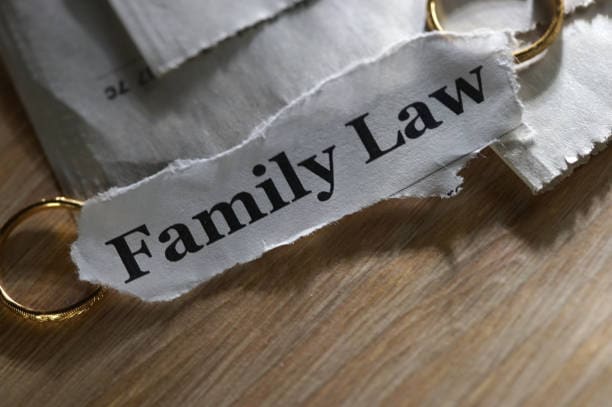What are the consequences of contravention of orders affecting children? Division 13A of the Family Law Act 1975 (the Act) provides the consequences of failure to comply with orders, and other obligations that affect children.
Specifically, Subdivision C to Subdivision E, Section 70NCA to Section 70NEG provide the consequences of contravention of orders affecting children. This article discusses contravention of orders affecting children.
Subdivision C: Contravention of Orders Affecting Children Alleged but Not Established
Section 70NCA: Application of Subdivision
Under Section 70NCA, Subdivision C applies if:
- court has made a primary order, whether before or after the commencement of this Subdivision,
- proceedings in relation to the primary order are brought before a court having jurisdiction under the Act,
- it is alleged in those proceedings that a person (the respondent) committed a contravention of the primary order, and
- the court does not find that the respondent committed a contravention of the primary order.
A “primary order” means an order under the Act that affects children.
Section 70NCB: Costs
Under Section 70NCB, the court may make an order that the person who brought the proceedings (the applicant) pay some or all the costs of another party, or other parties, to the proceedings.
The court must consider making an order if:
- the applicant has previously brought proceedings in relation to the primary order or another primary order in which the applicant alleged that the respondent committed a contravention of the primary order or that other primary order, and
- on the most recent occasion on which the applicant brought proceedings, the court:
- did not believe that the respondent had committed a contravention of the primary order or that other primary order, or
- believed that the respondent had committed a contravention of the primary order or that other primary order but did not make an order in relation to the contravention.
Subdivision D: Contravention Established but Reasonable Excuse for Contravention
Section 70NDA: Application of Subdivision
Under Section 70NDA, Subdivision D applies if the respondent proves that he or she had a reasonable excuse for the current contravention.
Section 70NDB: Order Compensating Person for Time Lost
Under Section 70NDB, if the primary order is a parenting order in relation to a child and the current contravention resulted in a person not spending time with the child (or the child not living with a person for a particular period), the court:
- may make a further parenting order that compensates the person for time the person did not spend with the child (or the time the child did not live with the person) because of the current contravention, and
- must consider making that kind of order.

Section 70NDC: Costs
Under Section 70NDC, if the court does not make an order in relation to the current contravention, the court may make an order that the applicant pay some or all of the costs of another party, or other parties, to the proceedings.
The court must consider making an order if:
- the applicant has previously brought proceedings in relation to the primary order or another primary order in which the applicant alleged that the respondent committed a contravention of the primary order or that other primary order, and
- on the most recent occasion on which the applicant brought proceedings, the court before which the proceedings were brought:
- was not satisfied that the respondent had committed a contravention of the primary order or that other primary order, or
- was satisfied that the respondent had committed a contravention of the primary order or that other primary order but did not make an order in relation to the contravention.
Subdivision E: Contravention of Orders Affecting Children Without Reasonable Excuse
For discussions on Sections 70NEA and 70NEB (powers of court in relation to contravention of orders affecting children without reasonable excuse), click here.
Section 70NEC: Bonds
Section 70NEC provides for bonds that a court may require a person to enter. A bond is to be for a specified period of up to 2 years. A bond may be:
- with or without surety, and
- with or without security.
The conditions that a bond may impose on a person include (without limitation) conditions that require the person:
- to attend an appointment (or a series of appointments) with a family consultant,
- to attend family counselling,
- to attend family dispute resolution, or
- to be of good behaviour.
If a court proposes to require a person to enter into a bond, it must, before making the requirement, explain to the person, in language likely to be readily understood by the person:
- the purpose and effect of the proposed requirement, and
- the consequences that may follow if the person:
- fails to enter into the bond, or
- having entered into the bond, fails to act in accordance with the bond.
Section 70NECA: Procedure for Enforcing Bonds
Under Section 70NECA, if the court thinks that the person has, without reasonable excuse, failed to comply with the bond, the court may:
- impose a fine not exceeding 10 penalty units on the person, or
- revoke the bond entered into and deal with the person, for the contravention in respect of which the bond was entered into, in any manner in which the person could have been dealt with for the contravention if:
- the bond had not been entered into, and
- the person was before the court in respect of the contravention.
The court must, in addition to any other matters that takes into account, also take into account:
- the fact that the person entered into a bond;
- anything done pursuant to the bond, and
- any fine imposed, and any other order made, for or in respect of the contravention.
Section 70NED: Duties of Provider of Post-separation Parenting Program
Under Section 70NED, the provider of a post-separation parenting program must inform the court if:
- the provider considers that a person ordered to attend the program is unsuitable to attend the program, or to continue attending the program, or
- a person ordered to attend the program fails to attend the program, or a part of it.
Section 70NEF: Evidence
Under Section 70NEF, evidence of anything said, or of any admission made, by a person attending a post-separation parenting program is not admissible:
- in any court (whether exercising federal jurisdiction or not), or
- in any proceedings before a person authorised by a law of the Commonwealth, of a State or of a Territory, or by the consent of the parties, to hear evidence.
Section 70NEF does not apply to the following:
- an admission by an adult that indicates that a child under 18 has faced abuse, or is at risk of abuse, and
- a disclosure by a child under 18 that indicates that the child has faced abuse, or is at risk of abuse.
unless, in the opinion of the court, there is sufficient evidence of the admission or disclosure available to the court from other sources.
Section 70NEG: Court May Make Further Orders in Relation to Attendance at Program
Under Section 70NEG, the court may make such orders as it considers appropriate in respect of a person, if:
- it appears to the court that the person has not attended a post-separation parenting program that the court ordered the person to attend, or
- they assess the person as unsuitable to attend a program.

Seeking Legal Advice from Expert Family Lawyers
If you are facing consequences on contravention of orders affecting children, we highly advise you to seek legal services.
JB Solicitors has a leading team of expert family lawyers who can help with your case. We provide legal advice regarding contravention of orders affecting children and answer any other questions you may have. Do you have any more queries on contravention of orders affecting children?
Contact us today.
